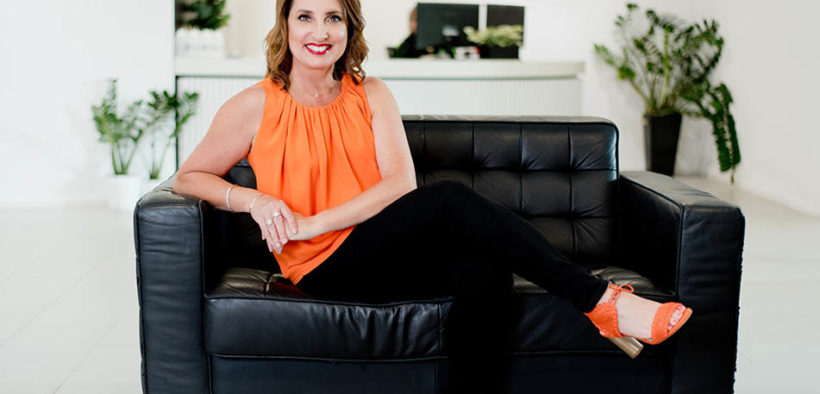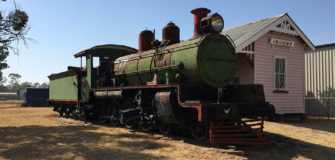Third Sector had the opportunity to sit down with Amanda Mather and talk about her storied career in working in the not-for-profit sector, as well as her recent appointment as CEO for Sporting Wheelies.
True to her experience as a seasoned NFP leader, Mather shares how the COVID-19 pandemic has made her first few months as CEO very challenging, and how she and Sporting Wheelies overcame it.
Below is our interview, lightly edited for brevity.
TS: Before we talk about Sporting Wheelies, we’d love to know more about you. We know you’ve been in the not-for-profit sector for 25+ years. What made you start working in NFP?
A: It was the difference I could make every day that attracted me to the not-for- profit sector.
TS: What would you say is your most important achievement in your career so far?
A: One of my career highlights is building the Queensland Children’s Hospital and penning their health service plan. It was essential for Queensland to get the planning right and build the hospital correctly, so it’s an achievement I’m extremely proud of.
On a personal level, I have really found pride in a program I orchestrated at Hear and Say, in which we tested prep students at Queensland schools to ensure we were detecting hearing impairments before they started their schooling. Learning is extremely difficult with an undiagnosed hearing impairment, so it was an incredibly important program to roll out.
I lead the program from its inception and Hear and Say have now screened more than 60,000 children, which is an amazing milestone. The school screenings have led to several children receiving cochlear implants or hearing aids. Thousands of children were also found to have chronic middle ear infections which are now medically managed. This will have a huge impact on the future of these children which is incredibly rewarding for me.
TS: In your time working with various causes and not-for-profits, what would you say is the greatest challenge you’ve faced so far? How did you overcome it?
A: The greatest challenge I’ve faced is getting people to come on a journey of change. There are staff that absolutely embrace change but there are others that it doesn’t come easily to. This is a process I’m quite used to, having worked on major change programs such as the amalgamation of the Royal Children’s Hospital and the Mater Children’s Hospital to the Queensland Children Hospital. This was the first time in history that two hospitals had been merged, so the cultural changes were an adjustment for a lot of people.
At Sporting Wheelies, the cultural changes associated with pivoting our services to tele practice, in a COVID-19 environment, brought challenges for me. In terms of overcoming them, it was mostly about showing people that change is not something to be afraid of, rather it’s something to embrace.
TS: Where do you plan to take Sporting Wheelies in the next couple of years? What are your goals?
A: When I arrived at Sporting Wheelies, I expressed to the board that I truly felt my appointment as CEO was bringing together all the skills, knowledge and wealth of experience I’d accumulated over the last 25 years – into an organisation that had great potential for the future. One of my major projects as CEO in the last 12 months has been our relocation to a facility designed to support all our services. In Queensland, we have a purpose-built centre that allows people with a disability to achieve magic moments in sport and rehabilitation.
Over the next couple of years, I plan to grow the organisation. There is great work to be done with so many more people, from growth on a local, state and national level through to implementation of new services and segments of the business. I am particularly passionate about growing our services in remote and indigenous communities, through to aged care support.
TS: Sporting Wheelies works with disabled people. What’s your favourite part of working in disability services?
A: Coming to the charity sector has always been about interacting daily with the people I am making a difference for. I can see the changes in their lives each day and that’s my favourite part. Being able to go out in the gym and say hi to our members, watch them train or work through their rehabilitation is amazing. For those that get to pursue competitive sports, being with them on that journey around the world is an incredible privilege.
TS: Which projects are you particularly excited to work on or are already developing with Sporting Wheelies?
A: We’ve just received an incredible grant from the government to fund a program called Raising the Bar. Having worked in the disability and health sectors for some time, I’ve learnt that people don’t always know what’s possible and available to them. Raising the Bar is all about showing people with a disability what’s possible, so they can continue to raise the bar on achievements in their own life.
TS: Has the pandemic affected your programs and if so, how are you addressing them?
A: We were heavily affected by the COVID-19 shutdown with the closure of our facility early on. Our members often have compromised immunity, so it was really important that we put them first. However, during a short period of time we completely pivoted our services, our fundraising team began working from home and we switched face-to-face consultations to tele practice. Processes that would normally take 12 months, were turned around in a matter of weeks.
Since then, we’ve provided in-home services – catering for those with compromised immunity so they can continue to receive the service and support they need. For our elite athletes it was about getting them back in centre and to their respective training facilities as soon as we could, so they could continue to prepare for the Tokyo Paralympics, in a safe environment.
Paulo Rizal is a content producer for Third Sector news. He has working experience in journalism, SEO, and social media marketing.


































































































































































